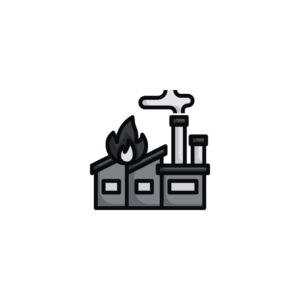Description
A Bachelor of Technology in Automobile Engineering (B.Tech in Automobile Engineering) is an undergraduate degree that focuses on the design, development, manufacturing, and maintenance of vehicles. This program combines theoretical knowledge with practical skills, enabling students to become proficient in various aspects of automotive technology and engineering.
Curriculum Overview
The curriculum for a B.Tech in Automobile Engineering typically includes a blend of core engineering courses, specialized automobile subjects, and practical training. Here are some common subjects and areas of study in this program:
Fundamentals of Engineering Mathematics:
Mathematical concepts and techniques applicable to engineering problems, including calculus, linear algebra, and differential equations.
Engineering Physics:
Study of physical principles essential for understanding automotive technologies, including mechanics, thermodynamics, and material science.
Engineering Mechanics:
Basics of forces, moments, and equilibrium, focusing on the behavior of physical systems relevant to automobile engineering.
Thermodynamics:
Understanding energy transformations, principles of heat transfer, and their applications in internal combustion engines and refrigeration systems.
Fluid Mechanics:
Study of fluid behavior and dynamics, crucial for understanding aspects such as aerodynamics and engine cooling systems.
Automobile Engineering:
Core topics specific to the automobile sector, covering vehicle dynamics, engine technology, and transmission systems.
Mechanical Design:
Principles of designing mechanical components, including materials selection, stress analysis, and fabrication techniques used in vehicles.
Manufacturing Technology:
Overview of manufacturing processes and technologies including casting, welding, machining, and assembly processes in the automotive industry.
Electrical and Electronics Engineering:
Introduction to electrical systems in vehicles, including wiring harnesses, sensors, actuators, and control systems.
Automotive Electronics:
Study of electronic systems used in automobiles, including engine management systems, infotainment, and safety features.
Vehicle Dynamics and Control:
Analysis of vehicle behavior during motion, focusing on handling, stability, and control systems.
Emissions and Pollution Control:
Understanding environmental regulations and technologies used to reduce emissions from automobiles.
Project Work/Internship:
Practical experience gained through industrial training, internships, or projects that provide real-world applications of classroom learning.
Career Opportunities
Graduates with a B.Tech in Automobile Engineering can pursue a variety of career paths in the automotive industry and related fields. Some potential job roles include:
Automobile Design Engineer: Involved in the design and development of vehicles and their components, utilizing CAD and simulation tools.
Manufacturing Engineer: Responsible for overseeing manufacturing processes, ensuring quality control, and improving production efficiency.
Automotive Systems Engineer: Designing and integrating complex automotive systems, including powertrains, safety systems, and electronic controls.
Research and Development Engineer: Engaging in innovative research to develop new technologies, materials, and processes in automobile engineering.
Test Engineer: Conducting tests and evaluations of vehicles and components to assess performance, reliability, and compliance with standards.
Service Engineer: Providing support and solutions for automobile maintenance, repairs, and diagnostics in service centers or dealerships.
Sales and Marketing Engineer: Working in the marketing of automotive products, utilizing technical expertise to connect with customers.
Quality Assurance Engineer: Ensuring that manufacturing processes and automotive products meet quality standards and regulatory requirements.
Consultant in Automobile Sector: Advising companies on automotive technologies, manufacturing processes, and market trends.
Academic or Research Roles: Pursuing teaching or research positions in universities or research institutions, focusing on automobile engineering advancements.
Further Education
Graduates may opt to pursue further studies, such as a Master?s degree in Automobile Engineering, Mechanical Engineering, or an MBA specialized in technology management or operations. Certifications related to specific engineering software or automotive technologies can also enhance career prospects.
If you have more questions about the curriculum, career paths, or other aspects of a Bachelor of Technology in Automobile Engineering, feel free to ask!









